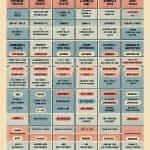The word “streaming” (pronounced /ˈstriːmɪŋ/) is a verb and noun that has become increasingly prevalent in the digital age, often appearing in IELTS listening and reading passages. It refers to the process of transmitting or receiving audio and video content over the internet, typically in real-time. Understanding the nuances of this term and its related vocabulary is essential for achieving a high score in your IELTS exam.
Here are some synonyms and antonyms for streaming:
| Synonyms | Antonyms |
|---|---|
| Broadcasting | Downloading |
| Webcasting | Offline access |
| On-demand viewing | Traditional broadcast |
Understanding “Streaming” in Depth
Definition and Usage
Streaming describes the continuous flow of data, primarily audio or video, from a server to a user’s device. Unlike downloading, streaming allows users to access and enjoy content without having to wait for the entire file to download. This technology underpins various platforms, from entertainment giants like Netflix and Spotify to online gaming and video conferencing applications.
Example:
“Streaming services like Netflix and Amazon Prime have revolutionized the way we consume entertainment.”
Different Contexts of “Streaming”
-
Live Streaming: This refers to broadcasting events in real-time, such as sports games, concerts, or conferences.
-
On-Demand Streaming: This allows users to access pre-recorded content at their convenience.
-
Music Streaming: Services like Spotify and Apple Music provide access to vast libraries of songs for a monthly fee.
“Streaming” in IELTS
Relevance in IELTS Sections
You are likely to encounter “streaming” and its related vocabulary in the IELTS Listening and Reading sections.
-
Listening: You might hear dialogues about streaming services, discussions on internet usage trends, or lectures on the impact of streaming on traditional media.
-
Reading: Passages could cover topics like the evolution of entertainment consumption, the impact of streaming on the music industry, or the technical aspects of data transmission.
Example in an IELTS Listening Section
You hear a conversation between two friends about their weekend plans:
Friend 1: “Are you watching the game tonight?”
Friend 2: “I can’t, I don’t have cable. I was thinking of streaming it online, though. Have you tried that new sports platform?”
Example in an IELTS Reading Passage
(Paragraph excerpt): “The advent of streaming has had a profound impact on the entertainment industry. Consumers are increasingly opting for on-demand services over traditional television, leading to a decline in cable subscriptions and a surge in the popularity of platforms like Netflix and Hulu.”
Using “Streaming” Vocabulary Effectively in Your Responses
Collocations and Phrases
- Stream live: “Many universities now stream live lectures to make education more accessible.”
- Streaming services: “The growth of streaming services has led to increased competition in the entertainment industry.”
- High-quality streaming: “A stable internet connection is essential for high-quality streaming.”
- Stream on demand: “With on-demand streaming, viewers can watch their favorite shows whenever they want.”
IELTS Writing Task 2 Example:
Topic: “Some people believe that streaming services have made television obsolete. To what extent do you agree or disagree?”
Sample response:
“The rise of streaming platforms has undeniably transformed the landscape of entertainment consumption. These services offer unparalleled convenience, providing access to a vast library of content on demand, which has led some to believe that traditional television is becoming obsolete. While streaming offers significant advantages, it is premature to declare the demise of television…”
(Continue to develop your essay, analyzing both sides of the argument and providing supporting evidence.)
Conclusion
Mastering the vocabulary related to “streaming” is crucial for navigating the IELTS exam effectively. By understanding its various contexts, using it correctly in your speaking and writing, and familiarizing yourself with related terms, you can demonstrate your language proficiency and boost your overall score. Keep practicing, and soon you’ll be “streaming” ahead in your IELTS journey!

